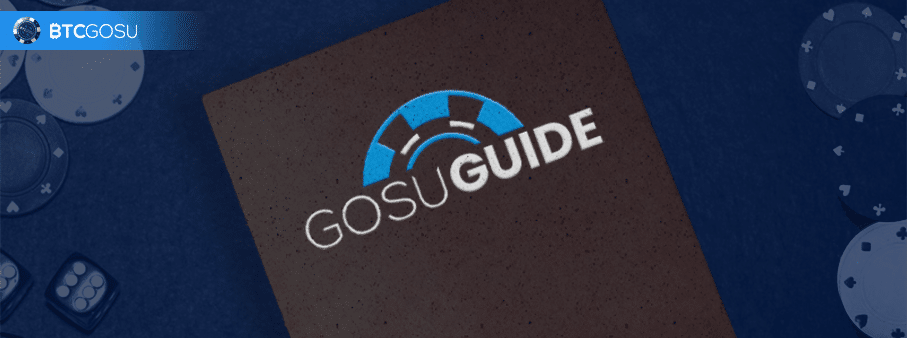The Psychology of Gambling: Why Gamblers Bet How They Do

Gambling is a pastime that has existed for millennia, and it is an interesting psychological phenomenon that has been the subject of some research. For many, it has proven to be a complicated field of study, as gamblers vary wildly in profile, and conclusions about this activity have changed over time. For example, ludomania, or problem gambling, was diagnosed as a mental disorder via the fifth edition of the Diagnostic and Statistical Manual of Mental Disorders. Yet, the previous manual classified it as a persistent and recurrent maladaptive behavior. So, definitions regarding how the mind reacts to this adrenaline-inducing hobby vary.
In the subheading below, the current deductions psychologists have made regarding why people gamble and how they think concerning casino gaming are discussed. In this article, we will somewhat disregard sports wagering. Though, many of the things said here also apply to betting action.
Motivations to Gamble
Naturally, the chief reason most people bet is to attain financial gain. That gets backed up by a 2021 poll posted on Statista.com that dives into the leading gambling motivations. Two of the top three reasons why people engage in this activity are playing to win big (27%) and so they can fantasize about winning (31%). Hence, the quest for wealth is a massive driving factor in which individuals stake their hard-earned money on events/games with uncertain outcomes. Moreover, 11% added that they do it thanks to the belief this activity is a reliable money-making pursuit. That is a bit paradoxical behavior on account of the wide-stemming perception that the house always wins.
Though, 41% of those polled answered they wager because it is a fun thing to do. That should not be understated, as many people engage in betting hobbies due to the excitement that accurately guessing unpredictable outcomes can bring. Some also get immersed in this entertainment form as a tool to escape everyday stresses/pressures. And for others, this is a coping mechanism for a wide range of emotional challenges.
Sadly, some people succumb to the addictive nature of gambling, and these are usually parties that have a genetic predisposition to have weak impulse control. Nevertheless, environmental influences can also contribute to this because gambling often gets seen as a social activity at land-based casinos and now even online. However, the dopamine boost it can supply is something that some individuals find highly appealing and get hooked on, as their brain gets rewired to crave it once they get used to it. That is why problem gambling gets compared and equaled to substance abuse addictions.
Risk Perception
Risk perception in gambling is seen as a complex interplay between risk assessment, decision-making, and disordered gambling. It goes without saying that gamblers’ perceptions of risk are influenced by a variety of factors. These include their estimations of danger, motivations, strategic planning, reinforcement, learning, implicit versus explicit cognition, ambivalence, exposure, decisional context, manipulation of risk data, and innate individual differences.
According to some research, disordered gamblers tend to maintain greater optimism about gambling. That conclusion suggests that disordered gambling is not simply a result of overestimating positive outcomes or personal control. Instead, both positive and negative perceptions independently influence the overall risk perception. Yet, these people happen to believe, more than average/moderate gamblers, that they will eventually come out on top, amplifying positive representations while discounting negative ones.
Of course, substance and alcohol intoxication. Plus, mental conditions like loneliness, negative feelings, and boredom can cause gamblers not to accurately calculate risk, leading to making poor choices. That is why it is never a good idea to play under the influence or when one is in a bad mood. Excitement, anticipation, and the thrill of winning can also overshadow the potentially negative consequences gambling can bring and affect a person’s inner hazard gauge. Furthermore, cultural characteristics can also play a role in this.
Cognitive Biases in Gambling
Per multiple studies, gamblers tend to place higher bets when actively involved in throwing the dice. That is because of the suggestion that they have some impact on the outcomes in the gaming round, the illusion of control. This falls in line with the concept of the gambler’s fallacy, people overestimating their influence chance-based results. For those who have never encountered this concept, the gambler’s fallacy is the erroneous belief that historical outcomes dictated the likelihood of future ones occurring.
Expanding beyond this false notion, we also have recency bias, outcome bias, and confirmation Bias. Recency bias prompts individuals to overvalue recent results. That is essentially a reliance on heuristics or utilizing mental shortcuts for making quick decisions based on limited information. For example, at brick-and-mortar casinos, a gambler may believe a machine is more likely to pay out if they hear recent winning stories. Overcoming heuristic reliance requires awareness, emphasizing statistical data over anecdotes.
Outcome bias leads to overemphasizing results rather than reasoning, and confirmation bias is seeking things aligning with one’s initial inclinations. From what we know about the science in this field, it is understood that gambling biases get tightly entangled with motivational and emotional processes. Hence, they can’t be effectively treated if these processes get neglected.
Rewards and Reinforcements
In the Statista posted poll we cited above, the fear of missing out was reported as a non-negligible reason some individuals gamble. That is a psychological phenomenon characterized by anxiety/apprehension when someone believes others are experiencing something rewarding without them. Gambling operators have put this concept to great use in online gaming. They have done so via limited-time offers and other tricks that stimulate site users to claim deals and gamble more. Naturally, they have also put to use rewards and reinforcement in shaping and perpetuating gambling behaviors.
On the reinforcement front, we have winning rewards, which, for instance, slot games do by displaying winning animations even on technically losing spins. That makes the brain associate playing with a sense of reward. We also have the near-miss effect, another form of positive reinforcement built into most casino games or inherently present by the nature of their gameplay. Studies show that it activates the same reward centers in the brain as wins do, and this boosts motivation for gamblers to continue gambling.
Operant conditioning can be explained by variable reinforcement schedules, such as games providing occasional payouts to keep players engaged. We also have intermittent reinforcement, where rewards get spaced out so that individuals are unsure when the next prize will come, enhancing the excitement level connected to continuing gambling.
Environmental cues and social reinforcement should not be underestimated. Consequently, casinos use bright lights and loud sounds to evoke sensory stimuli for building conditioned responses. Acknowledgment for dealers, staff, and peers is also a positive reinforcement, linking a sense of worth with getting a gaming reward.
Paradoxically, even losses can contribute to continued gambling, causing a quest for a positive balance and emotional state, driving to a deeper cycle of risk-taking.
Social Factors
At the micro level, relationships within families and communities deeply shape gambling behaviors. Close ties with regular gamblers can and frequently contribute to increased betting activities. And on the flip side, relationships with non-gamblers can act as a protective factor. Moreover, social interactions occurring in specific historical contexts, paired with cumulative stressful life events, can lead to increased wagering.
Education systems are a critical institution for informing individuals from a young age about the risks and benefits of gambling. So, those not exposed to this may be more prone to bet. Also, challenges exist in disseminating preventive measures, as gambling may not be viewed as a significant concern by many educators. If youngsters do not learn the dangers of wagering in school, neighborhood dynamics, as evident in areas with lower socioeconomic statuses, generate higher rates of gamblers. Accordingly, one’s surroundings play a substantial role in whether a person will start and continue gambling throughout life.
It should also be noted that the stigmatization of gambling, comparable to conditions like alcohol disorder and schizophrenia, does, in fact, pose a massive barrier for most to seek help in treating this issue. The shame and fear of discrimination hinder disclosure in most cases.
Diagnosing Addiction & Getting Help
The symptoms of gambling addiction are an increasing craving for gambling, gambling when distressed, restlessness when attempting to quit, and repeated unsuccessful attempts to control betting impulses. Going by the mentioned DSM-5 American Psychiatric Association book, a diagnosis of this disorder requires the presence of at least four of these symptoms within the past year.
The DSM-5 rattles off environmental factors, traumatic circumstances, and the presence of other addictions as risk factors for developing this one. Genetic and neurological factors may have an influence, as can certain medications.
Treatment customarily involves cognitive-behavioral therapy, using mood stabilizers, and self-help group participation. The goal is to address the underlying emotional problem that stimulates someone to gamble. On this journey, developing healthier coping mechanisms becomes mandatory.
For those suffering, seeking help is the first and most crucial step, and for those uncertain about whether they are falling in the grip of problem gambling or not. Self-tests are available online, helping provide an initial assessment, but a face-to-face evaluation by a trained professional is necessary for an accurate diagnosis.
Relevant news

Five Darts-Themed Gambling Games
For many, darts is a traditional pub activity but also a competitive sport with a…

Checkmate the Reels: Chess-Themed Slots to Try
We would say that chess is the most established board game ever. We say this…

Navigate Mazes for Big Wins With These Minotaur Slots
The Minotaur, half man, half bull, is one of the most famous creatures from Greek…

How Can You Predict Multipliers in Crash Gambling Games?
It's tough to make successful predictions in most casino games due to the house edge…

Monkey King Slots: A Journey Through Myth and Fortune
As far as Chinese literary figures go, there is likely no one that has gotten…

Chasing Magical Wins on the Five Best Unicorn Slots
Unicorns are fictional creatures synonymous with fantasy tales set in the Middle Ages. These mythical…





Login
Register